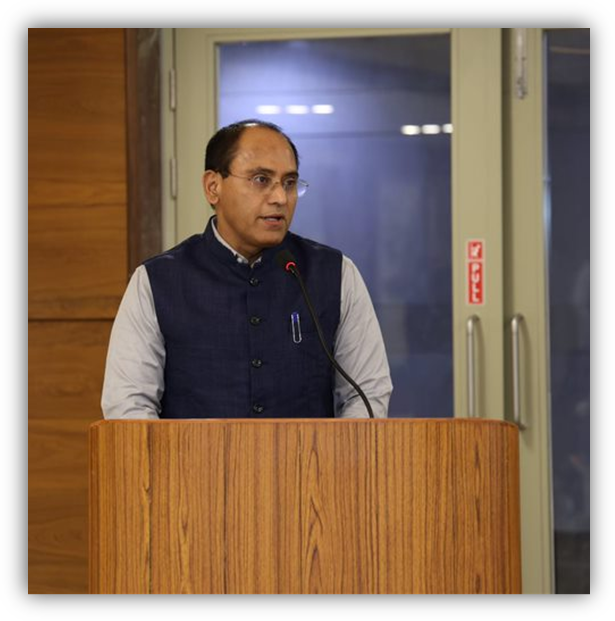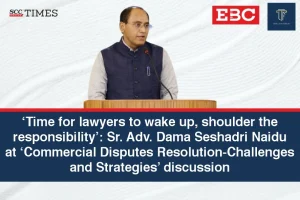In an enriching discussion hosted by The Law Forum and EBC on ‘Commercial Disputes Resolution-Challenges and Strategies’, Mr. Dama Seshadri Naidu, Senior Advocate, delivered an enlightening address, he explored critical issues from a lawyer’s perspective, such as the profession’s dependence on prolonged litigation, the lack of judicial infrastructure, and the nuances surrounding the imposition of costs in India.
Speaking on the issue of speedy disposal of cases, Mr. Naidu remarked that it was a matter of mindset. To underscore his point, he shared anecdotes from the early days of his career, recalling how young lawyers often relied on the extended duration of money suits to sustain their livelihood. In one instance, he recounted that he was discouraged from filing a suit under Order 37 of the Code of Civil Procedure, 1908 (‘CPC’) because speedy disposal of such money suits would result in joblessness for the lawyers.
Regarding the mindset of lawyers, he remarked that it was the idea that, “a litigation has to simmer on the burner, as if it were the vintage wine you could cherish at one day.”

Further addressing the lack of infrastructure, he highlighted that there is no dearth of statutes, or specialised courts such as Civil Courts, SARFESI Courts, Commercial Courts, etc., and enactments for speedy disposal, however, the number of judicial posts has not kept pace. He mentioned that one judicial post at the district level requires a support staff of 20 to 24 people, and the post of a High Court judge requires 35 persons as the support staff.
Mr. Naidu also illustrated how the misallocation of judicial resources further compounds the problem. Citing the example of Tirupati, he noted that matrimonial cases often take up to 10 years for disposal, primarily because courts initially established as specialised forums are later burdened with additional jurisdictions, thereby defeating the purpose of demarcating a Special Court. He emphasised that this was the systematic issue.
“If you have the same judges, without any particular training as to the importance of either ease of doing business or the speedy disposal, the same judges will have the same method because they have the same CPC.”
Commenting on our legal system’s fondness for the procedures, Mr. Naidu stated that in Mofussil Courts, advocates would get engaged not for their forensic prowess, but their ability to delay. He opined that these tactics employed by the advocates in such endeavours, such as filing multiple interlocutory applications, were another issue of the legal system.
Thereafter, he emphasised the need for cutting down on procedure, condoning the dilution of the CPC amendments in 2001 and 2002 that provided a stringent timeline for filings.
On the topic of costs, Mr. Naidu pointed out that in England, unless the advocates are compelled to, they will not seek an instant relief ex-parte due to the heavy costs that would be imposed if it is proved that it was not on a firm foundation, the costs are so prohibitive that the client would go bankrupt.
In this regard, he shed light upon an Indian case where a public sector undertaking in the early 1950s had an unregistered lease deed. So, under the Transfer of Property Act, 1882, they had month-to-month tenancy. However, by the time the matter reached the Bombay High Court, 50 years had passed.
“Perhaps it’s time we woke up, it’s time even as lawyers, we shoulder the responsibility.”
Concluding his address, Mr. Naidu expressed hope for the improvement and progress of India in not just ease of doing business but also the legal system.

